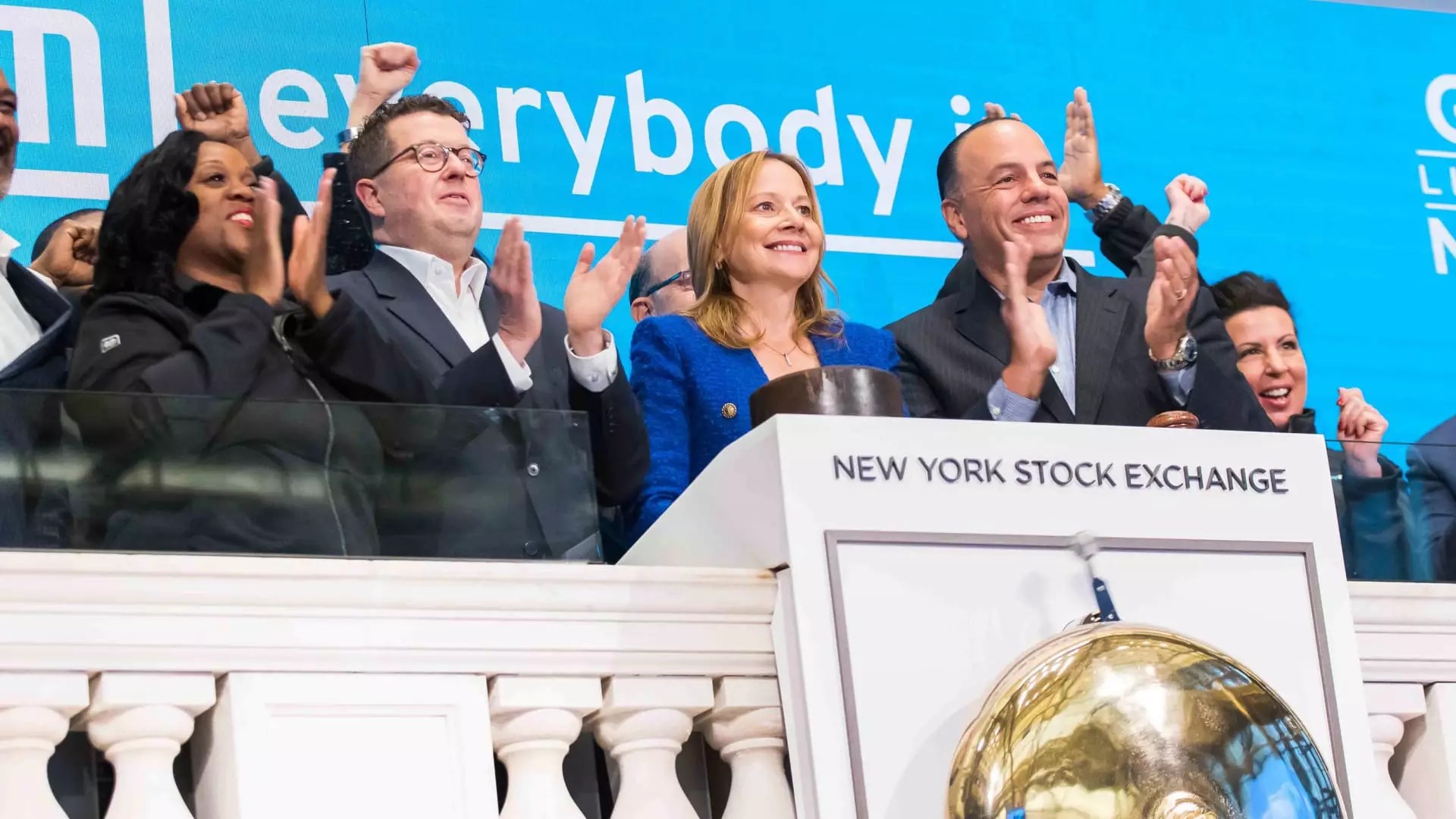In a notable response to the evolving automotive landscape, General Motors (GM) has unveiled a substantial increase in its quarterly dividend and initiated a significant share repurchase program totaling $6 billion. These strategic maneuvers aim to enhance shareholder value amidst the backdrop of slowing sales and industry profits. The announcement, made on a Wednesday in Detroit, highlights GM’s ongoing commitment to its investors even as industry challenges loom on the horizon.
Effective with its upcoming payout scheduled for April, GM has raised its quarterly dividend by an impressive 25%, bringing it to 15 cents per share. This decision positions GM in a competitive stance with close rivals like Ford Motor Company. Alongside this dividend increase, GM has laid out plans for a $6 billion share repurchase program, with an expectation to mobilize $2 billion in stock buybacks within the second quarter. Such measures reflect GM’s strategic focus on effective capital allocation, aiming to strengthen its relationship with investors while navigating a challenging market.
Mary Barra, the CEO of GM, expressed confidence in the company’s operational execution across its capital allocation strategy. This strategy rests upon three foundational pillars: reinvesting in profitable growth, maintaining a robust investment-grade balance sheet, and returning value to shareholders. This multi-faceted approach illustrates GM’s intention to foster sustainable growth while ensuring that shareholders see tangible returns. Barra’s recent statements hint at an ongoing commitment to capital returns throughout this fiscal year, thereby reinforcing investor confidence.
Despite commendable quarterly results that frequently surpass Wall Street expectations, GM’s stock has encountered a decline of over 12% year-to-date. Analysts attribute this downturn to a variety of factors, including stagnating sales across the automotive industry, regulatory uncertainties, and a perception of limited growth prospects. These challenges underscore the complex landscape in which traditional automakers must operate, intensifying the need for innovative strategies that balance immediate shareholder rewards with long-term growth objectives.
The immediate share repurchase initiative is designed as an accelerator, with the total shares repurchased being contingent on GM’s average daily stock price during the buyback period. JPMorgan and Barclays will oversee the execution of this program. Notably, GM will also retain a capacity of $4.3 billion in future repurchases, including $300 million from its earlier buyback efforts. This flexibility in financial strategy underlines GM’s agility and preparedness in responding to market variables.
Earlier in the year, GM achieved a pivotal target of reducing its outstanding shares below 1 billion, a feat celebrated by GM CFO Paul Jacobson. This milestone not only highlights effective financial management but also reflects GM’s strategic adaptation to the demands of a competitive market. In terms of future outlook, GM projects a robust performance for 2025, anticipating net income for stockholders in the range of $11.2 billion to $12.5 billion, complemented by adjusted earnings expectations of $11 to $12 per share. These optimistic projections provide a glimmer of hope amidst the prevailing uncertainties of the automotive market.
While GM’s recent initiatives signify a robust commitment to shareholder value, the company must navigate a volatile environment marked by industry stagnation and regulatory challenges. The combination of increased dividends and share repurchase programs reflects a strategic effort to maintain investor confidence. However, GM’s management must remain vigilant in its approach, ensuring that its aggressive capital return strategies do not compromise long-term growth. Ultimately, the road ahead for GM will demand both adaptability and foresight as it seeks to reinforce its standing within an ever-evolving global automotive landscape.


Leave a Reply